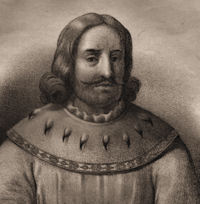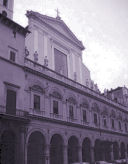Let’s face it. It’s hard not to get angry—even with those who are closest to us! And yet here Jesus is, telling us to resist sin and turn away from anger. And as difficult as it sounds, it does make sense. After all, our eternal destiny is heaven, where we will live in peace and unity with each other and Almighty God.
But we don’t have to wait until the Second Coming for unity to prevail. We don’t have to resign ourselves to swallowing all our hostility, hoping that Jesus will keep on forgiving us. Although he certainly does forgive, that is not the central message of the gospel. No, the heart of the gospel message is that Jesus died to forgive our sins so that we could be transformed! In fact, he knows that we can keep his law of love only as we keep our eyes focused on him in prayer.
In today’s first reading, Ezekiel calls us to turn away from sin and live a life of holiness. This includes the command to put aside anger. It may seem as if Ezekiel expects us to do this solely by our own power, but that’s only if we look at this passage in isolation from the rest of Ezekiel’s prophecies. For later on, Ezekiel promises that God will put his own Holy Spirit in us to enable us to fulfill his commands—even the things that seem near impossible to us. As St. Athanasius taught: “God became man so that man could become God.”
In the Holy Spirit, we have all the grace we need to do away with sin. Every time we face temptation, every time we find anger pulling us in the wrong direction, our best defense is to turn this great promise into a prayer and statement of faith: “Jesus, you became a man so that I could become like you. I believe in your grace. Lord, I ask for your help right now.” This is how we can win the spiritual battle—by combining our efforts with trust in God’s power. Together, we really can become holy!
“Lord Jesus, the gift of your Holy Spirit is beyond all my expectations. Thank you for your marvelous grace! Help me, Lord, to love as you do.”
Ezekiel 18:21-28; Psalm 130:1-8

